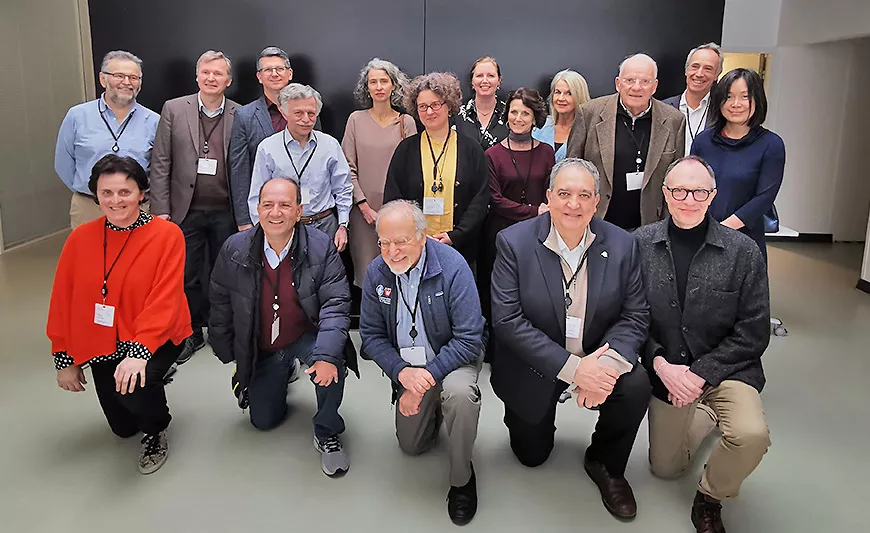Governance
The Institut de la Vision research centre is directed by Dr Serge Picaud, assisted by the Strategic Committee and the International Scientific Council. The Institute is supported by 3 prestigious bodies (Inserm, CNRS and Sorbonne University) and Institut de la Vision's Foundation (Fondation Institut de la Vision).
The Strategic Committee
The Strategic Committee meets twice a month to discuss scientific orientations, budgetary procedures and the organisation of the internal life of the Institut de la Vision.
Composition
- Alain Chedotal - Developmental Biology Department
- Olivier Marre - Visual Information Processing Department
- Christina Zeitz - Genetics Department
- Florian Sennlaub - Therapeutics Department
- Valentina Emiliani - Photonics Department
The International Scientific Committee
The International Scientific Committee meets at least every two years to evaluate the scientific policy and contribute to the future vision of the Institut de la Vision. Representing 9 nationalities, it is made up of 16 internationally recognised independent experts in the fields of ophthalmology, neuroscience, photonics, vectorology, immunology, computational science and artificial intelligence.

Composition:
- Steve MOSS - University College, London, England
- Fritjof HELMCHEN - Brain Research Institute, Switzerland
- Michel CAYOUETTE - Clinical Research Institute of Montreal, Canada
- Thérèse COLLINS - Université de Paris Cité, France
- Sarah DOYLE - Trinity College, Dublin, Ireland
- Jane FARRAR - Trinity College, Dublin, Ireland
- Jonathan VICTOR - Weill Cornell Medical College, USA
- Katarina STINGL - University Hospital Tübigen, Germany
- Paloa BOVOLENTA - Severo-Ochoa Molecular Biology Centre, Spain
- John DOWLING - Harvard University, USA
- Na JI - University of California, USA
- Elfride DE BAERE - Centre for Medical Genetics, Belgium
- Anand SWAROOP - National Eye Institute, USA
- Larry BENOWITZ - Boston Children’s hospital, USA
- Jesús MERAYO LOVES - Fernandez-Vega Ophthalmological Institute, Spain
- Andrew DICK - University College, London, England
Foundation Institut de la vision
The Foundation is a scientific cooperation foundation which coordinates and supports the Institut de la Vision's research projects.
Find out more about the Foundation
Guardianship
The Institut de la Vision research centre is under the supervision of three prestigious institutions - Sorbonne University, Inserm and the CNRS - which have been involved in its development since its conception and from which the majority of the Institute's researchers come:
Sorbonne university
For more information : Sorbonne University
Inserm
For more information : Inserm
CNRS
For more information : CNRS
